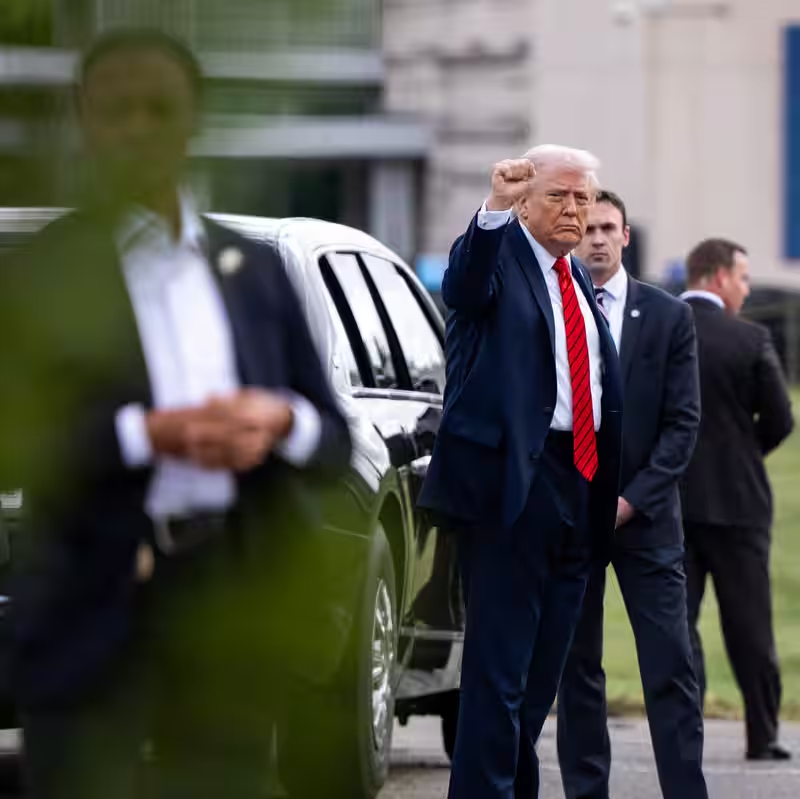Table of Contents
- The Two Faces of Trump in One Week
- The Gaza Ceasefire and Trump’s Nobel Ambitions
- Retribution at Home: From Letitia James to Government Shutdown
- Is This Strategy or Contradiction?
- How Americans Are Reacting to the Whiplash
- Sources
Trump’s Split Screen: Peacemaker Abroad, Punisher at Home
In a single 48-hour stretch in October 2025, President Donald Trump embodied two starkly different versions of leadership—one celebrated on international stages, the other condemned in American streets.
On Thursday morning, he stood before cameras touting a breakthrough in the Israel-Gaza conflict, calling it “the deal of the century, part two.” By afternoon, federal agents had arrested New York Attorney General Letitia James—a move Trump had personally demanded days earlier.
This duality—diplomat abroad, enforcer at home—has become a hallmark of Trump’s second term, creating a political whiplash that confounds allies and energizes critics.
The Gaza Ceasefire and Trump’s Nobel Peace Prize Push
Trump’s administration brokered a multi-phase agreement that could end two years of brutal warfare between Israel and Hamas. The deal includes the release of hostages, a phased Israeli withdrawal from parts of Gaza, and U.S.-backed reconstruction funds.
“No one else could’ve done this,” Trump declared at the White House. “Not Biden. Not Obama. Not even Kissinger.” He then floated his own name for the Nobel Peace Prize—a move he’s made before, though never successfully.
World leaders, including Israeli Prime Minister Benjamin Netanyahu and Egyptian President Abdel Fattah el-Sisi, credited U.S. pressure and backchannel diplomacy. Yet even as celebrations erupted in Tel Aviv and Ramallah, skepticism lingered in Washington.
Domestic Retribution: From Letitia James to Government Shutdown
While trumpeting peace overseas, Trump escalated domestic confrontations with striking speed.
Just hours after the Gaza announcement, the Justice Department indicted Letitia James on charges related to campaign finance violations—an investigation Trump had publicly called for on Truth Social. Critics labeled it “weaponized justice”; supporters called it “long overdue accountability.”
Meanwhile, Trump refused to negotiate with Democratic leaders over a health care funding bill, allowing a partial government shutdown to take effect. “Let them suffer,” he told aides, referring to constituents in Democratic-led states. “They’ll blame Schumer, not me.”
He also deployed National Guard units to cities like Chicago and Philadelphia—ostensibly to “restore order,” though local officials called the move an unconstitutional overreach.
Is This Strategy or Contradiction?
Political analysts are split on whether Trump’s dual approach is calculated or chaotic.
| Perspective | Argument |
|---|---|
| Strategic Duality | Trump is appealing to both moderates (via foreign wins) and his base (via domestic toughness). |
| Cognitive Dissonance | The whiplash undermines credibility—how can he be a unifier abroad and a divider at home? |
| Legacy Building | He’s crafting a “strongman peacemaker” image reminiscent of Nixon or Reagan. |
“It’s not a contradiction—it’s a brand,” said GOP strategist Maria Lopez. “He’s showing he can bend the world to his will while never backing down from a fight.”
How Americans Are Reacting to the Whiplash
Public opinion remains deeply polarized. A recent [INTERNAL_LINK:polling-data] survey found that 72% of Republicans approve of Trump’s handling of both foreign and domestic issues, while only 18% of Democrats agree.
On social media, the split screen went viral: one side showed Israelis dancing in the streets; the other showed federal agents leading James away in handcuffs. The caption? “Make America Conflicted Again.”
Yet for many voters, the contrast isn’t confusing—it’s clarifying. “He gets results,” said truck driver Mike R., 54, from Ohio. “Peace over there, justice over here. What’s the problem?”
Others see danger in the precedent. “When the president uses the full power of the state to settle personal scores,” said constitutional law professor Dr. Elena Ruiz, “democracy itself becomes collateral damage.”




